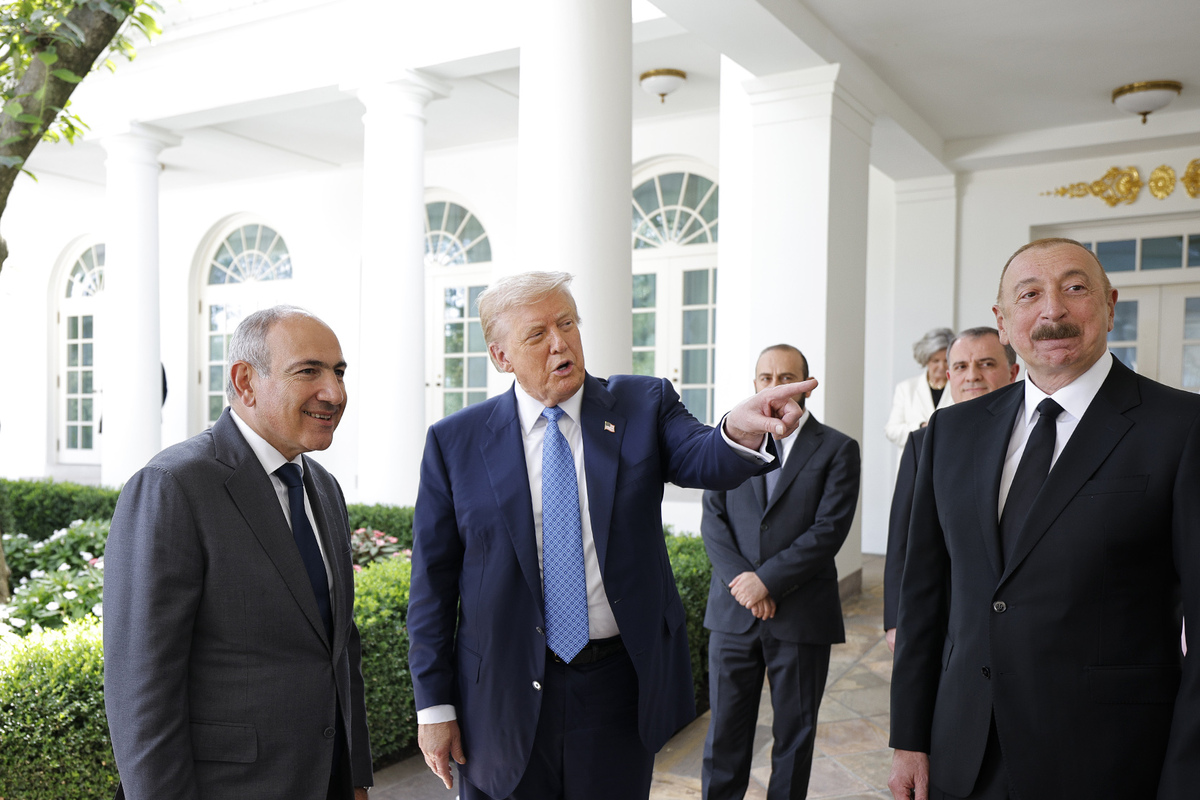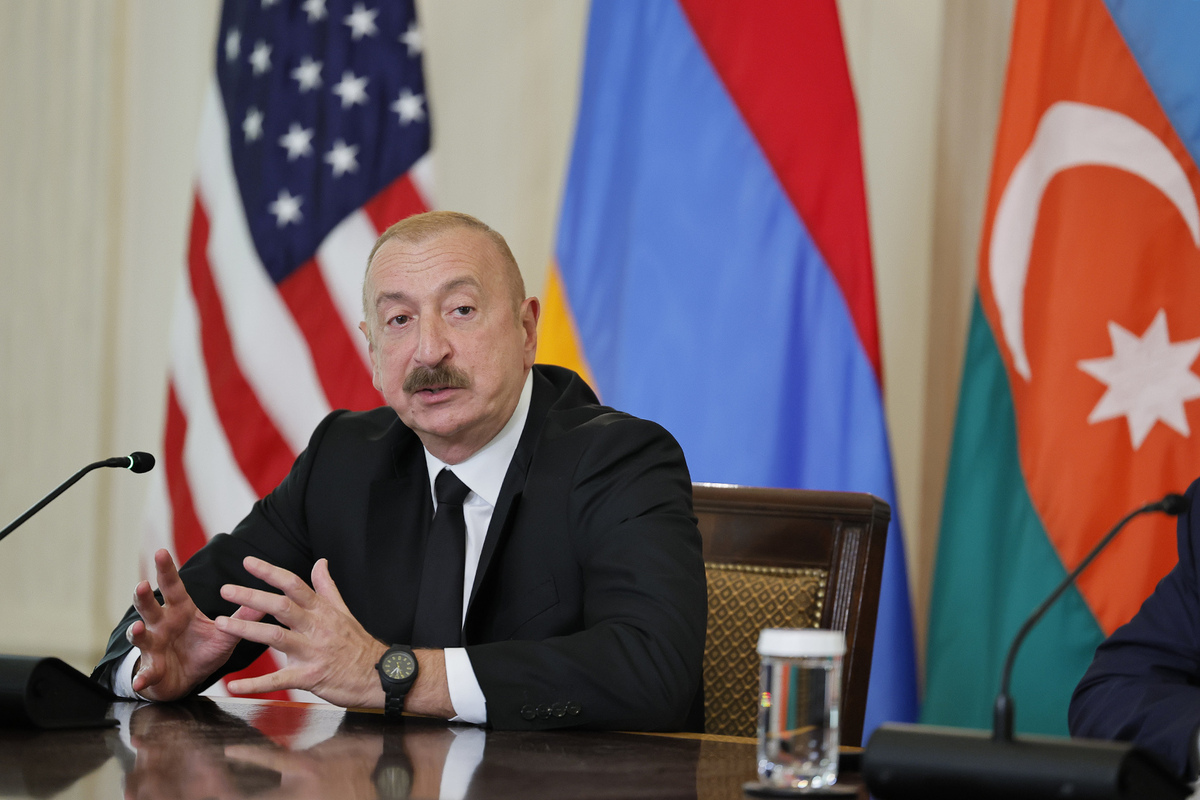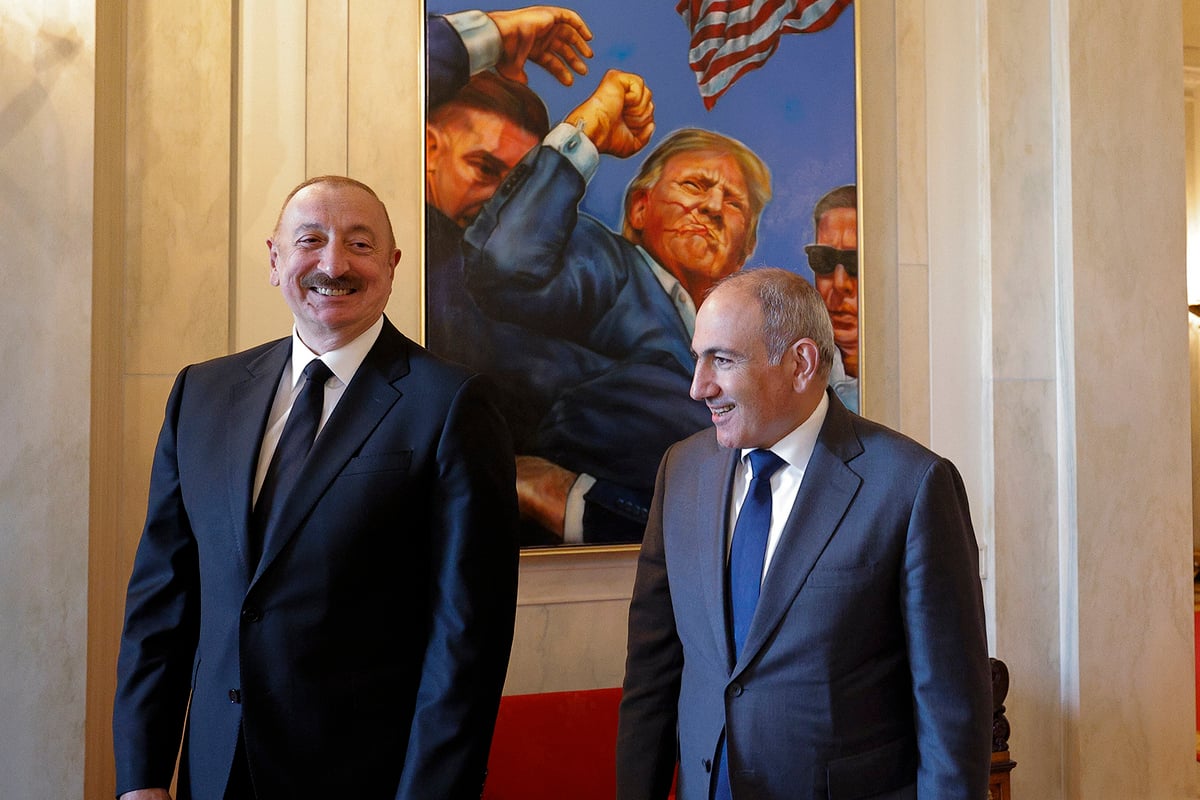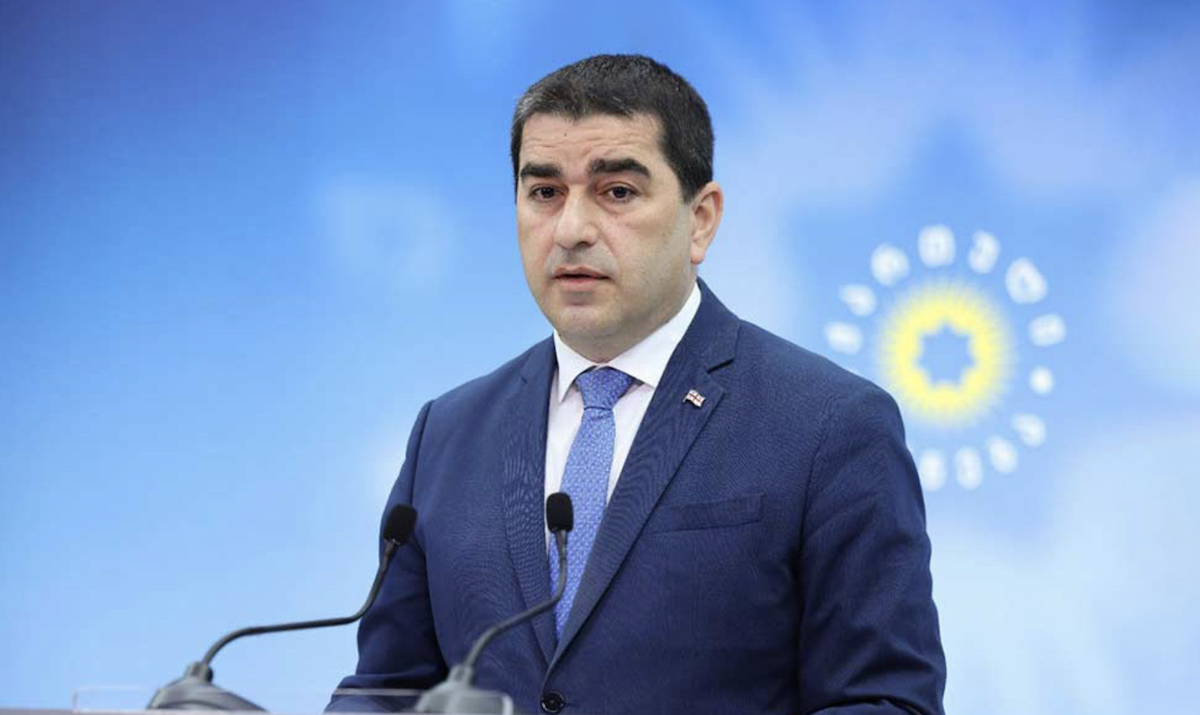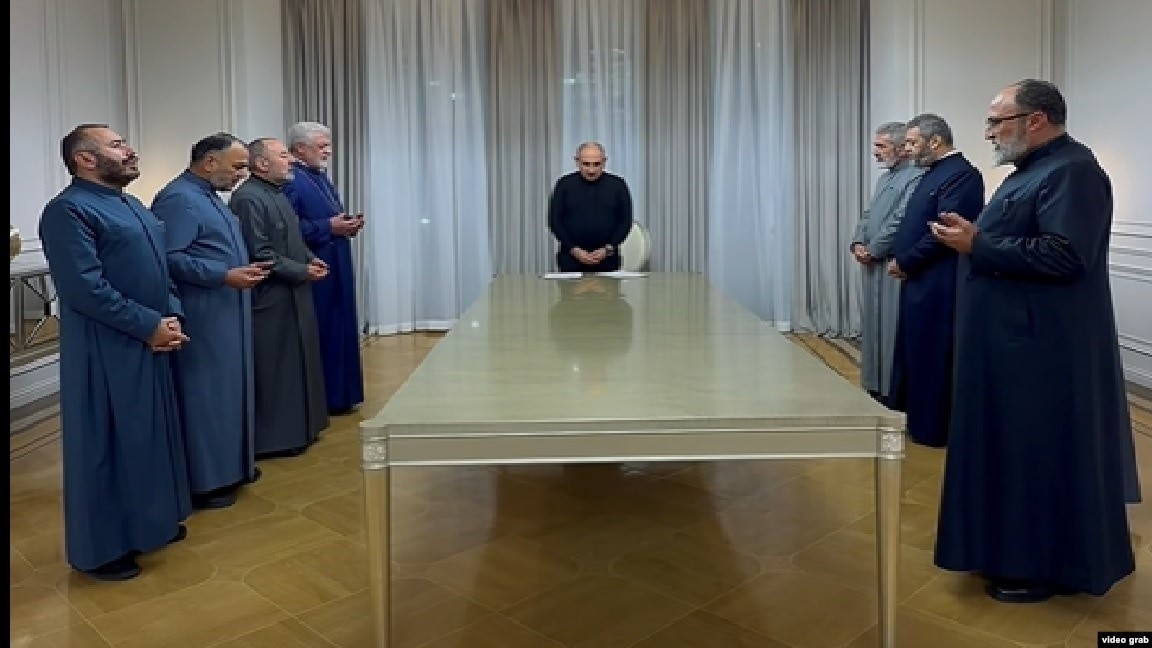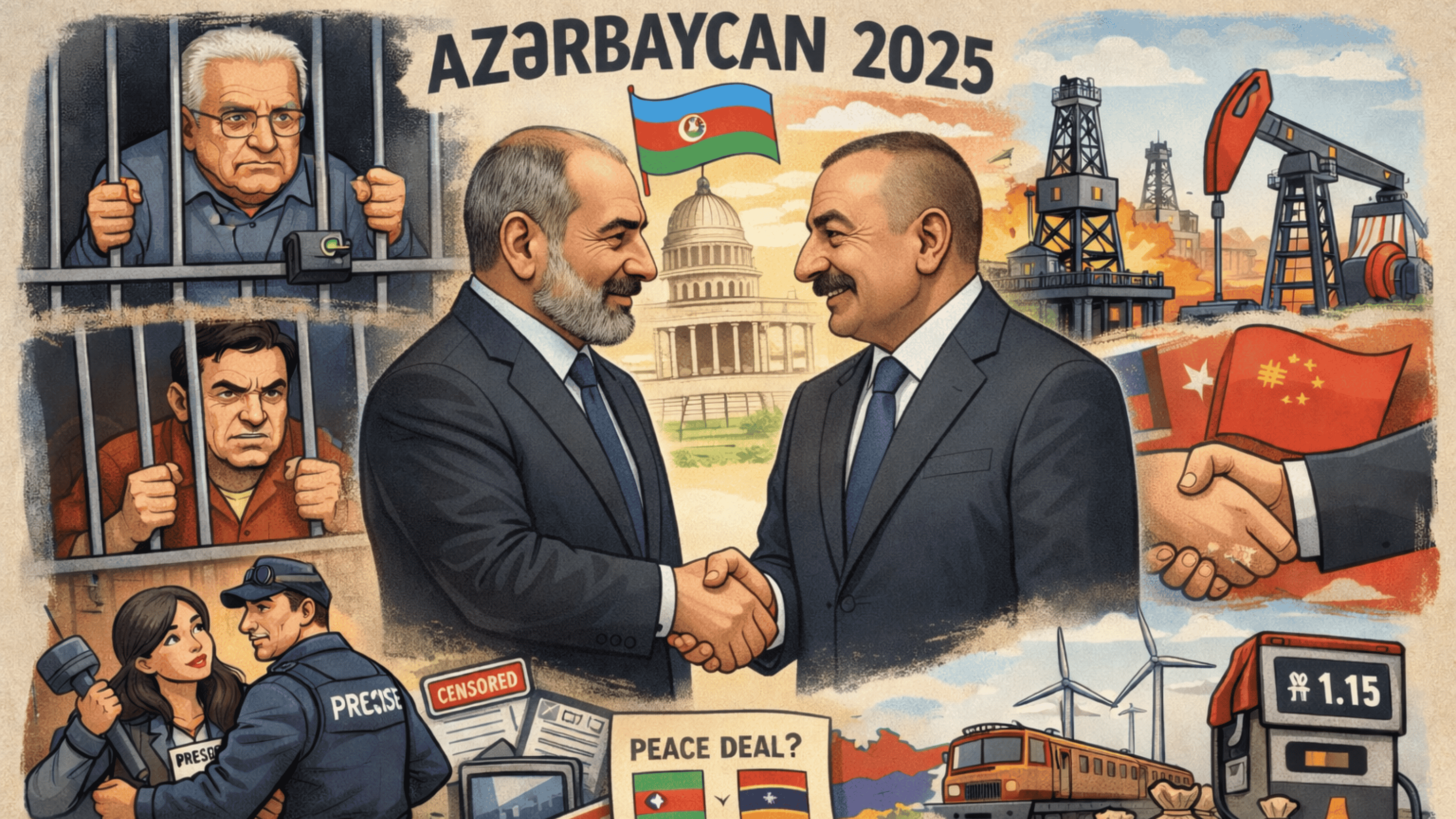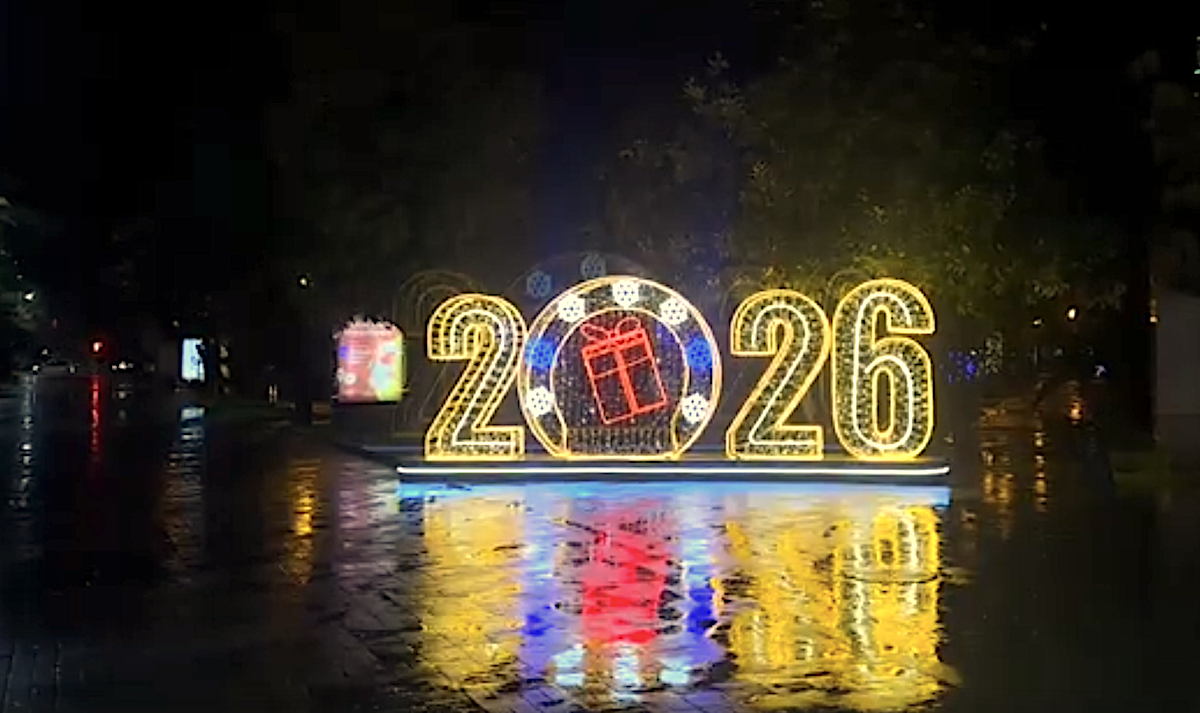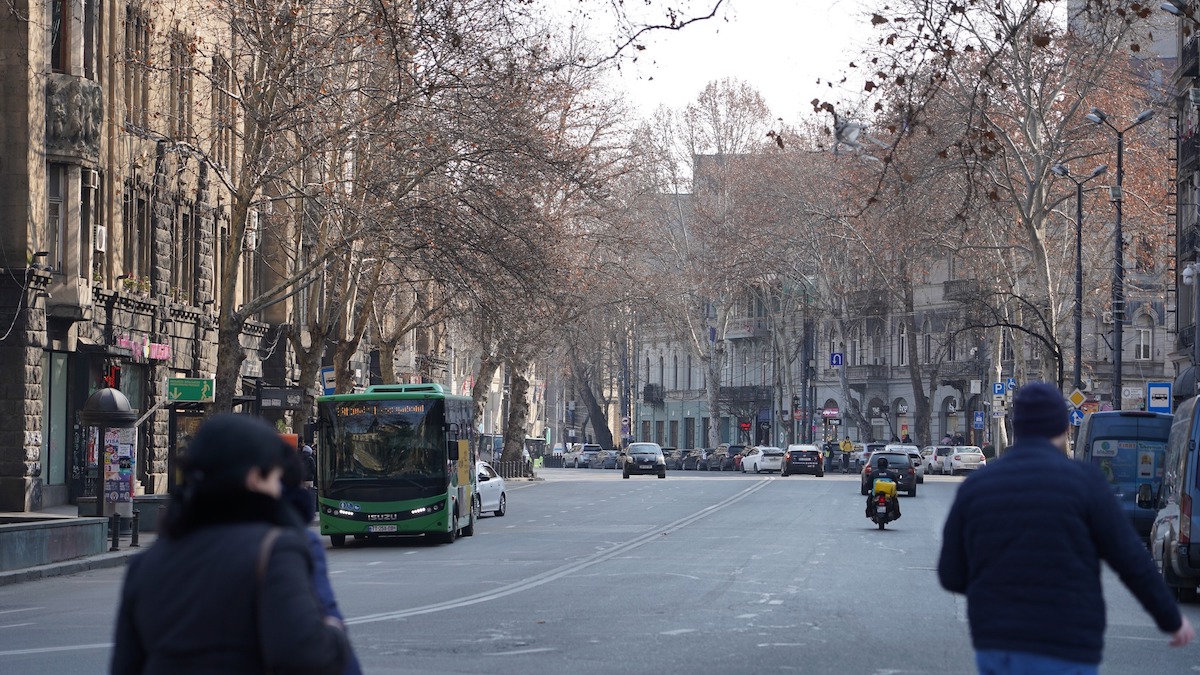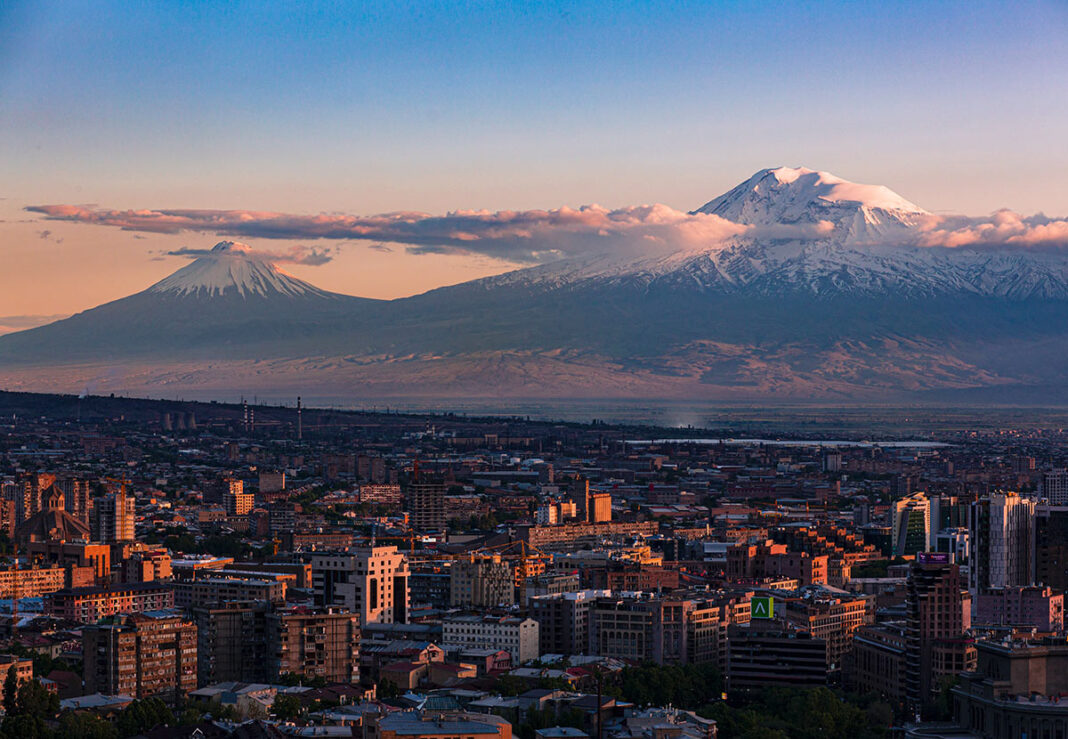'If we look back, Azerbaijan isn’t on the map': Armenian response to Aliyev’s remarks
Yerevan rejects Aliyev’s claims on regional toponyms
Azerbaijan’s president has called for “numerous studies to explore and promote the history of independent Azerbaijan”. He also claimed that most place names in Armenia have Azerbaijani origins. Once again, Ilham Aliyev referred to Lake Sevan by its Azerbaijani name, “Goycha”.
This did not go unnoticed in Armenia. Both government officials and analysts reacted to Aliyev’s remarks.
“If we dig into history, we’ll find that at some point old maps don’t show the name Sevan. Instead, we see the Geghama or Gegharkunik Sea. And there is no Azerbaijan. But there’s no sense in looking back. We need to move forward. That’s the essence of the 8 August declaration,” said Ruben Rubinyan, deputy speaker of parliament, referring to the document signed in the US by the leaders of Armenia and Azerbaijan with American mediation.
“If we plunge into historical searches, someone might end up discovering their homeland in the Altai. I don’t think this statement [from Aliyev] corresponds with the logic of peacebuilding. At the same time, it’s clearly aimed at Azerbaijan’s domestic audience,” noted Alen Simonyan, speaker of the National Assembly.
Prime Minister Nikol Pashinyan also addressed the issue at an international conference in Yerevan. He said such narratives from Baku stem from the psychological strain of a 30-year conflict.
“Politically, the conflict is over. But you can’t stop the social and psychological effects by hitting the brakes. This logic pops up in the press, among analysts, even at the level of state leadership. We need the right formulas to overcome these patterns,” he said.
Experts from Azerbaijan also attended the conference. Armenian journalists asked whether they agreed that Aliyev’s statements undermine peace efforts.
“I think you should refer to the official representatives of Azerbaijan. If you’re interested in an expert opinion, I suggest we all familiarize ourselves with the Washington Declaration, signed by both countries. It concerns the mutual recognition of territorial integrity and the inviolability of borders,” noted Rusif Huseynov, director and co-founder of the Baku-based Topchubashov Center.
More about what the President of Azerbaijan said, how the Prime Minister of Armenia commented on his statements, and how the expert community in Yerevan reacted to them — in our report.
- Opinion: ‘US involvement in South Caucasus is serious step, not game’
- Trump Route: Western illusion or turning point in South Caucasus?
- ‘We won’t become best friends, but Azerbaijanis’ perception will change’ – Armenian political analyst
Aliyev: “Our rich history has long been distorted by Armenia”
“Unfortunately, our rich history has been distorted for many years by Armenia and the Armenian diaspora. Propaganda against us in this regard continues even today. We must respond with our own facts. I spoke about this ten years ago, and I want to say it again today: we must study and promote our history,” said the president of Azerbaijan.
According to Aliyev, Azerbaijanis have lived and continue to live across a vast geographical area, including parts of present-day Armenia, “but they were expelled from there.” He is confident that Azerbaijanis will return to live in Armenia again.
“They do not create and will not create problems for any state or any other people in any country. Therefore, the return of Azerbaijanis to modern Armenia should not alarm the Armenian people or the Armenian state. I mentioned this some time ago. We must return to our historical lands – not on tanks, but by car. The main responsibility for this, of course, lies with the state. Civil society organisations and Azerbaijani scholars have produced many academic works in this area – I am aware of and observe this. Even more work of this kind is needed,” he said.
Speaking about maps published in Tsarist Russia in the early 20th century, Aliyev said that they do not show Lake Sevan but instead feature the name Goycha and other Azerbaijani toponyms. He also claimed that Tsarist Russia “resettled Armenians from Iran and eastern Anatolia” into Karabakh to change the ethnic and religious composition of the population.
He added that “there is a need for a large number of studies examining and promoting the history of Azerbaijan” so that the return of Azerbaijanis to modern Armenia appears “logical and fair.”
Pashinyan: “Sometimes in Armenia and Azerbaijan, only part of history is seen and acknowledged”
Speaking at the international conference Orbeli Forum: Building Peace and Multilateral Cooperation, the prime minister of Armenia said that the socio-psychological challenges of the 30-year conflict can be addressed through “political leadership.”
“Political leadership must provide a clear answer to the question: do we want to be consumers of history or its creators? The experience of the past two years shows that we can create history. And this does not mean forgetting history[…]. It means not taking on the contradictory role of reproducing history,” he stressed.
Pashinyan noted that just as Azerbaijani toponyms such as Basargechar are frequently invoked in Azerbaijan, Armenian names like Artsakh or Kovsakan are equally prominent in Armenia.
“Sometimes in Armenia and Azerbaijan, only part of history is perceived and acknowledged. People consider the part of history that comes from their own side legitimate, and that from the other side illegitimate. Are they right or wrong? The very framing of this question and the attempt to answer it is a recipe for failure,” the prime minister said.
Pashinyan: “Peace between Armenia and Azerbaijan is established, but refugee returns remain sensitive”
Prime Minister Nikol Pashinyan reiterated that peace has been established between Armenia and Azerbaijan. He cited the regulations of the border delimitation commissions, the joint declaration signed in the US in August, and the initialing of the peace treaty as evidence.
He stressed that peace is “the first shared value that Armenia and Azerbaijan have created together.”
At the same time, he noted that the agenda of returning refugees and internally displaced persons to their former homes “poses a risk to peace.”
Commentaries
Tatevik Hayrapetyan, an expert on Azerbaijan, wrote on her Facebook page:
“Since Pashinyan has once again decided to take on the role of Aliyev’s psychologist, I have a suggestion. For the sake of peace, he should go to Baku and act as Aliyev’s psychologist, helping him overcome his Armenophobia. This would benefit both us and Azerbaijan. That would be the conduct of a true leader.”
Political commentator Hakob Badalyan criticised the Armenian prime minister’s approach:
“In essence, the very specific statements and instructions that Aliyev issued to government and non-government structures under his control are being translated by Nikol Pashinyan into a philosophical field. He frames them in terms of conflict energy, social psychology, and so on.
Of course, one can philosophize about any issue when there is no opportunity to take an adequate political position. But in this case, Pashinyan should seriously consider stepping aside. Then, from the height of his ‘world-understanding’ position, he can deliver philosophical lectures to those who supposedly do not understand peace.
Politics and international relations, especially conflicts, should be handled by those with expertise in the field.”
Political scientist Robert Ghevondyan urged Armenian society not to react to provocative statements from Baku:
“Let us hope for a time when historical maps will truly matter. Until then, empty statements from the father, son, grandfather, or grandson of the Aliyevs will mean nothing. Do not fall for provocations. The only path to success is hard work. Live your lives, have children, develop, and create. Then we will see what happens next.”
Yerevan rejects Aliyev’s claims on regional toponyms










